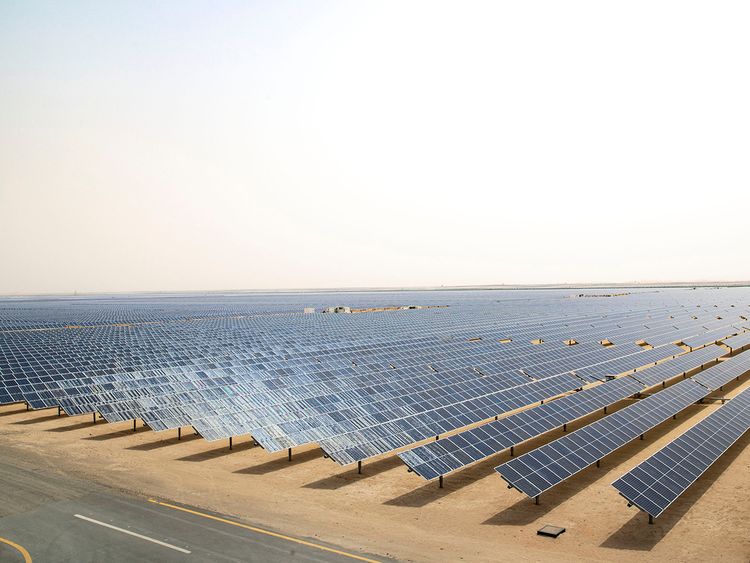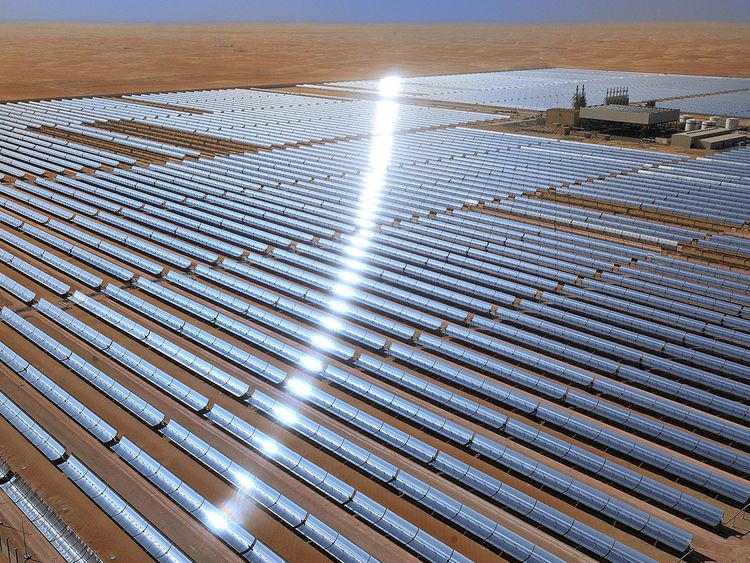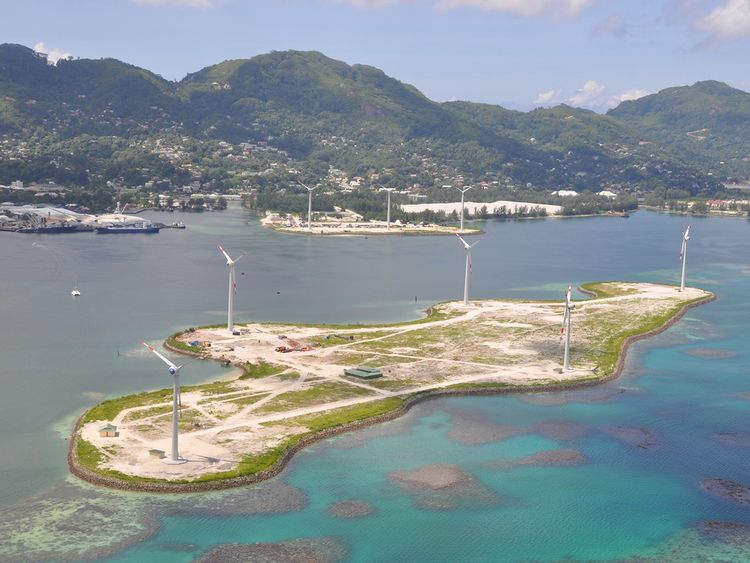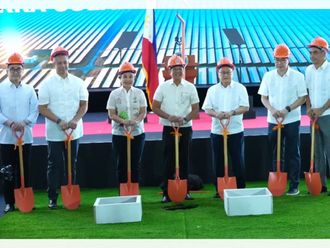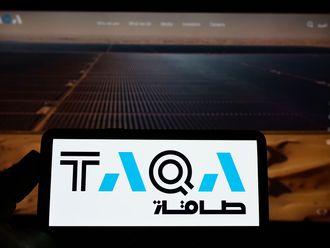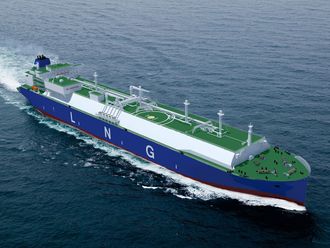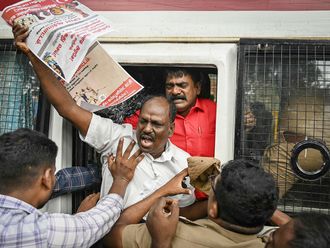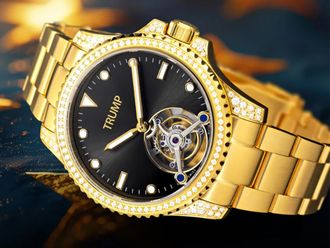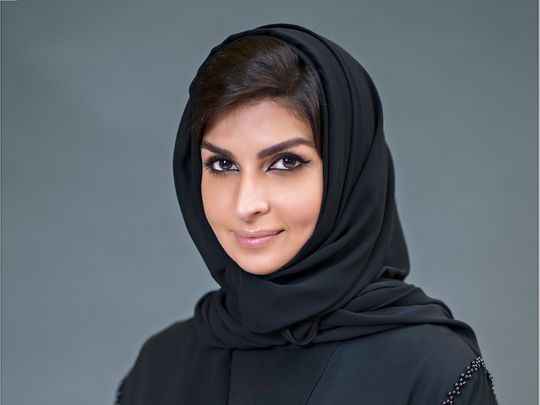
Dubai: Sustainability. Net Zero. Green Economy. Renewables.
From buzzwords that everyone liked talking about when they wanted to be seen as doing good, the sustainability theme is now topping national agendas. And for businesses as well. Because the impression is gaining ground that waiting any longer to do good will make for one hot planet.
In this debate of how to get sustainability initiatives going, the issue of gender has often been raised. In particular, that women are better placed to handle this particular need to change. Talking to ‘Gulf News‘, Dr. Lamya Nawaf Fawwaz, Executive Director of Brand and Strategic Initiatives at Abu Dhabi renewable energy entity Masdar, makes a point about gender.
Why make sustainability a gender-focused issue? Shouldn’t it override all such demarcations?
The United Nations has emphasized that achieving gender equality is the best chance humanity has in meeting some of the most pressing challenges of our time, including climate change. That is why the UN made gender parity an overarching objective for its Sustainable Development Goals (SDGs). It recognizes that women are not only more affected by economic, social, and environmental stresses — all of which are made worse by unsustainable patterns of development — they also have potential to contribute new ideas and leadership to help solve them.
More than 3 billion people do not have access to clean cooking systems, like gas or electric stoves. Instead, these people must use wood, animal waste, or charcoal for fuel, which can take up five to six hours every day to collect—a burden that falls almost exclusively on women. The impact of unclean fuel use also falls heavily on women, who make up six out of every 10 of the millions who die every year from exposure to air pollution caused by unclean fuel smoke.
Empowering women so that their potential is realized can significantly accelerate sustainability. Engaging women as active agents in deploying off-grid renewable energy solutions has been documented to improve sustainability and gender outcomes.
Women’s participation can increase project and policy effectiveness, as well as efficiency of energy-sector interventions to achieve SDG 7, which aims to ‘ensure access to affordable, reliable, sustainable and modern energy for all’.
In short, women and girls are the ones who are more severely impacted by the effects of our unsustainable systems, and they represent an undervalued asset that can help us accelerate sustainable development. It is in our collective interest to empower them.
When you talk about empowering women in the sustainability mission, are you focusing on women-owned businesses?
When it comes to tackling big global challenges, we cannot succeed without the active engagement and empowerment of more than half the world’s population: women. Across industries, data show that empowering women has a multiplier effect on innovation, sustainability, and profitability, with female-founded companies consistently delivering twice as much revenue per dollar invested than those founded by men.
Despite this proven investment potential, women across much of the world remain locked out of financial opportunities, receiving less than 3 per cent of the $643 billion venture capital invested last year.
To fight climate change, we must not only secure more equitable funding for women-led sustainability initiatives and businesses at the community level. We must also support women working across the energy sector in key operational roles—the engineers, designers, researchers, and project managers—with the aim of ultimately getting more women into the C-suite, where they can effect meaningful change.
The amplification of women’s voices is equally critical in ongoing conversations around the development of green-energy policies and infrastructure projects.
The Women in Sustainability, Environment and Renewable Energy (WiSER) platform works to enable women in all sectors to play an active role in addressing global sustainability challenges through training, networking, mentorship, and discussion initiatives¬. We also work with industry, non-profit organizations, government and academia to highlight systemic gaps and best practices.
In an ideal world, how would you go about creating the environment to allow women to make such a difference?
I think the UAE provides a great example of how to create an enabling environment for women to make a difference. Since the days of Sheikh Zayed, the UAE leadership has made empowering women a priority.
The result of that commitment over the past 50 years is that today women constitute over two-thirds of government university students and over half of private institute students. Our girls and young women are specifically encouraged to study STEM, which has contributed to women making up 56 per cent of STEM graduates.
Our labor laws mandate equal pay for men and women and provide three months of paid maternity leave to working women. All listed companies in the UAE are required to have at least one woman on their board of directors.
The UAE also has the region’s highest percentage of female ministers and has set up the UAE Gender Balance Council to help close the gender gap.
Have you already rolled out multiple initiatives to take the WISER message forward?
WiSER was launched in September 2015 and since then we have been steadily expanding our programs.
Through the annual WiSER Forum, we invite policymakers, industry leaders, and other influential figures to discuss relevant topics related to sustainability in the context of gender equality. We will be publishing a whitepaper summarizing key insights from this year’s forum in the coming days.
The WiSER Pioneers program offers young women - aged 25 to 35 - access to a year of educational workshops and global networking opportunities. The WiSER Mentorship Program gives WiSER Pioneers access to senior figures from various industries and disciplines for one-to-one sessions geared toward helping mentees progress in their careers.
These initiatives are complemented by the WiSER Wisdom Series, which serves as a knowledge-sharing and debate platform through which local, regional, and international figures come together to share their thoughts on key topics.
Do you give set and reachable targets on what women could achieve on the mission?
WiSER’s goal is to position women as drivers of change and innovation and ensure their voices are heard across the sustainability debate. Our goal is to reach as many women as possible, to give them the opportunity and resources to not only influence the ongoing sustainability debate but to also help shape the future sustainability agenda.
Many seem to think sustainability is about governments doing it – and with individuals doing their part later. Do you think that mindset requires a reset?
Yes, a complete reset is required to encourage all stakeholders, from individual citizens to local communities and international corporations, to take more proactive ownership of their role in mitigating climate change. Governments and policymakers certainly have an important role to play, but such large-scale global change across diverse cultures, communities, and organizations cannot be imposed unilaterally from the top down.
Individuals living in a particular community or working at a single company are best equipped to recognize and address unique sustainability challenges or opportunities.
Though much remains to be debated before a global policy consensus is reached, the UAE, Masdar, and its WiSER platform prove that empowering women and girls is not only guaranteed to promote sustainable development at the local and regional levels, but may very well be the key to winning the global fight against climate change.


